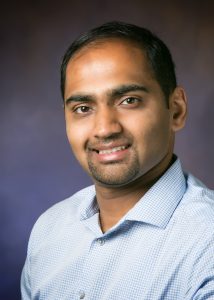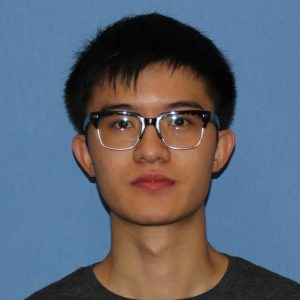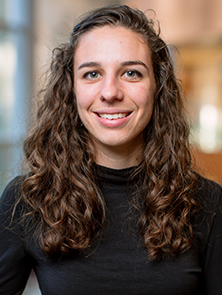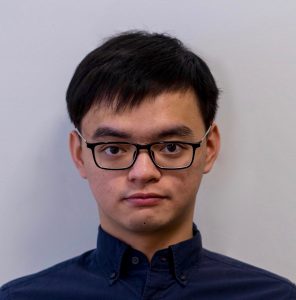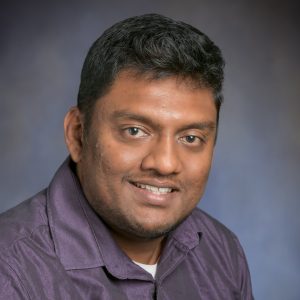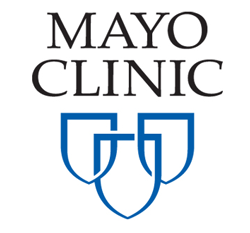CCBGM Student Profiles
The following students are actively engaged in research on CCBGM projects.
Anticipated graduation date and anticipated degree: May 2018, Doctorate in Electrical and Computer Engineering
Are you available/interested in a summer internship: No
Research accomplishments: I have developed an analyses framework called Analytics and Machine Learning for Omics and Clinical Data (ALMOND). ALMOND jointly analyses omics (genomics, metabolomics, transcriptomics etc.), socio-demographic factors and longitduinal electronic health records data to generate actionable intelligence. This is a piece of knowledge with high confidence and accuracy which can be used to tailor diagnosis/therapeutic choices or inform candidates for laboratory experiments leading to discovery of novel biomarkers/disease biology. This framework uses probabilistic graphical models as its core analytical engine, with further support from game theory, other machine learning methods (supervised, unsupervised and deep learning methods), and rank-order statistics. This work has been published in several IEEE conferences and biology/clinical journals, and has earned Best Paper Awards at IEEE Conferences, Travel Grants and 2017,2018 Presidential Trainee Awards from the American Society for Clinical Pharmacology and Therapeutics.
Short term/long term research interests: To be a leading innovator in artificial intelligence tools and methods for use in routine clinical practice, thus enabling high-precision prognoses and predictability in clinical therapeutics by accurately modeling the science of complex diseases (e.g., neurological disorders, cancer) and associated drug mechanisms. At the core of the innovations will be the development and use of novel statistical/machine learning methods that augment a clinician’s knowledge, experience and expertise.
Anticipated graduation date and anticipated degree. I anticipate graduation in Aug. 2018, with PhD degree in biophysics
Are you available/interested in a summer internship: Yes, I’m interested in a summer internship.
Research accomplishments: For my master’s degree in University of Tennessee, I worked on Iron-based superconductivity energy band computation and had three non-first-author publications. For my phD degree, my projects are on statistical analysis of genotype-phenotype association. First, it was a methods paper submitted to BMC Bioinformatics using empirical significance evaluation of gene ontology enrichment. Currently, I’m working on the CCBGM project for model validation and search space reduction.
Short term/long term research interests: I’m currently interested in associating measurable biological traits with genetic variations and finding out biological pathways. For longer term, I would like to specifically apply statistical methods in disease and individualized pharmaceutical research
Anticipated graduation date: May 2018, Anticipated degree: Master of Science
Are you available/interested in a summer internship: NO
Research accomplishments: I have been working on project related to bioinformatics starting from my undergrad time. I was working the GPU acceleration of a popular k-mer counting tool named KMC2. I achieved a 3.8x speedup over the original version.
Short term/long term research interests: My current research interest is on developing a workflow to create training datasets for machine learning in variant calling. Very limited amount of data is available to the public for training neural networks in variant calling while these networks typically require a large amount of training data. The goal of this project will be to facilitate the training of such neural networks by inserting artificial variants into real sequencing reads.
Anticipated graduation date and anticipated degree: December 2018, PhD
Are you available/interested in a summer internship: No
Research accomplishments: As a graduate student in Dr. Richard Weinsilboum’s laboratory, I have had the opportunity to collaborate with a number of different specialists in order to expand our understanding of major depressive disorder (MDD) and response to medication. I worked with other laboratory researchers to better understand how genetic variations may relate to metabolomic variations in MDD patients before and after treatment, which have been published in two peer-reviewed manuscripts. I have also had the opportunity to present these findings at the American Society for Clinical Pharmacology and Therapeutics (ASCPT) Annual Meeting, the Metabolomics Meeting and The American Society for Pharmacology and Experimental Therapeutics (ASPET). In addition, I have worked closely with Arjun Athreya – a graduate student in the Electrical and Computer Engineering Department at the University of Illinois Urbana-Champaign – who has successfully used the multi-omics data for these MDD patients in order to predict clinical outcomes using machine learning. This work has been presented in a number of different forums including national meetings (IEEE (Institute of Electrical and Electronics Engineers), ASCPT) and webinars and is currently being prepared for publication.
Short term/long term research interests: I am broadly interested in personalized medicine and the use of a variety of biomarkers to help us understand both the mechanisms of disease and variation in response to medication. I am especially interested in the integration of a variety of different “-omics” including genomics, metabolomics, transcriptomics and microbiomics in order to understand disease dynamics and treatment response. I currently study the pharmacogenomics of major depressive disorder (MDD) and utilize genomic, metabolomic and clinical phenotype data in order to interrogate the molecular mechanisms that may contribute to MDD and to use medication as a probe to identify relevant pathways that may be important for response. In the future, I hope to also integrate microbiomics with these other –omics (genomics and metabolomics) in order to better interrogate the host-microbiome interaction and its role in health, disease and clinical intervention.
Anticipated graduation date: May 2021, anticipated degree: Ph.D.
Are you available/interested in a summer internship: Yes I am interested in getting a summer internship.
Research accomplishments: So far, I have developed a new compression method on DNA methylation files and it outperforms gzip in the compression ratio by up to 8 times. The software is available on GitHub. We also have a paper related to this submitted. Besides that, I am also working on using Deep Learning techniques on bioinformatics and compressing the size of such deep network.
Short term/long term research interests: My research interests will mainly focus on deep learning related areas.
Anticipated graduation date and anticipated degree. PhD in ECE, during or after December 2018
Are you available/interested in a summer internship: YES.
Research accomplishments: During my Masters degree at UIUC, I worked on algorithms and high-performance implementations of genomic tools, mainly DNA read error-correction and tool evaluation. During that period, we published papers on FPGA acceleration of DNA error correction (https://tinyurl.com/y8fjbt3z), and the Pair HMM (https://tinyurl.com/y9t8k8zb), as well as an error correction tool, BLESS 2 (https://tinyurl.com/ydfapswc), an algorithmic and performance improvement over BLESS, a read error correction tool that was previously developed in our group. For my PhD thesis, I am working on Machine Learning and Deep Learning solutions to genomics problems, and also applying these solutions elsewhere. We developed an unsupervised learning-based somatic variant caller that shows improvement in our experiments over MuTect 2, Broad Institute’s somatic variant caller. We recently developed a new model for representation of sequence type data that integrates Deep Learning models in a probabilistic framework. With this model, we have obtained improvement over the state-of-the-art for predicting Transcription Factor binding specificity from PBM data. I am currently working to apply the model to speech data to demonstrate its generality. This model will next be extended and applied to the CCBGM project that I am working on, where we try to improve variant calling efficacy through Deep Learning.
Short term/long term research interests: Over the short term, I am interested in leveraging Deep Learning models to remove simplifying assumptions in the traditional probabilistic and statistical treatment of problems. In bioinformatics, there is a large number of such probabilistic models, and is a rich playground for such investigations. The resultant solutions bring us domain knowledge from the original solution design, as well as the very high representational power of Deep Neural Networks. Over the long-term, I would like to develop this into a methodology which enables the design of very complex, but probabilistically rigorous systems, enabling handling of sophisticated data as well as providing interpretability through the probabilistic formulation.
Anticipated graduation date and anticipated degree: 12/31/2018, PhD
Are you available/interested in a summer internship: No
Research accomplishments : The technique developed by Yoga, named ‘EEG-GRAPH’, has the ability to perform real-time feature processing and localization with clinically relevant accuracies, with a very short ICU monitoring duration. This technique utilizes a graphical model-based approach to jointly analyze the spatial and temporal patterns in brain activity to achieve an unprecedented level of accuracy in localizing seizure generating brain regions only using non-seizure data. This work was published as a research paper in the most reputed engineering venue for artificial intelligence, Neural Information Processing Systems (NIPS), and was featured in top medical meetings such as American Epilepsy Society (AES) meeting and Society for Neuroscience (SfN) meeting, and recently in CSL and Illinois news. The clinicians at the Mayo Clinic believe that this technology has the potential to transform the field of brain mapping and epilepsy surgery because the patients will no longer require multiple days of hospitalization to record their habitual seizures, but rather can have a single intra-operative procedure to localize epileptic brain tissue that can then be immediately resected. Mayo Clinic has initiated a patent for this technology and soon going to incorporate it into the clinical workflow.
Short term/long term research interests: My interests span probabilistic modeling approaches for addressing challenges associated with complex, real-world, dynamical systems. In that context, my PhD research focuses on developing probabilistic models and artificial intelligence techniques to address complex clinical challenges, related to the most complex biological system, brain. I have extensive expertise in statistical signal processing techniques and machine learning methods, both in their fundamentals and practical application. I leverage my expertise in both of these areas and clinical domain knowledge of my collaborators at the Mayo Clinic to develop unique analytic frameworks that provide actionable intelligence and biological insights.
